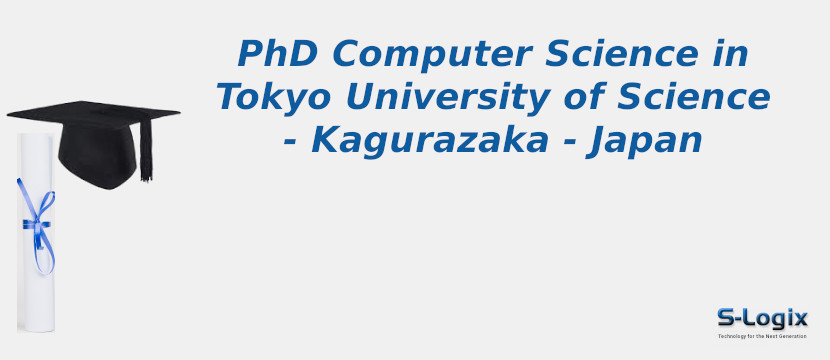Tokyo University of Science is a prestigious private research institution in Kagurazaka, Tokyo, Japan, founded in 1881. Tokyo University of Science has a powerful reputation for research greatness and is ranked as one of the leading universities in Japan.
Research at Tokyo University of Science spans a broad range of fields, such as science, engineering, technology, and the humanities. In the research field of computational science, the Tokyo University of Science covers various topics, such as computational physics, chemistry, biology, artificial intelligence, and machine learning.
Tokyo University of Science strives to achieve excellence, build a better future with Science and contribute innovation in science and technology for sustainable development.
Address: 1 Chome-3 Kagurazaka, Shinjuku City, Tokyo 162-8601, Japan
Phone: +81 3-3260-4271
Email: intlexchg@admin.tus.ac.jp.
Website: https://www.tus.ac.jp/
• Bachelor of Science in Information Sciences
• Master of Science in Information Sciences
• Doctor of Philosophy in Information Sciences
• Bachelor of Engineering in Computer Science and Engineering
• Master of Engineering in Computer Science and Engineering
• Doctor of Engineering in Computer Science and Engineering
The computer science research at Tokyo University of Science - Kagurazaka - Japan is highly regarded for its cutting-edge advancements in areas such as
• Logic
• Algorithms
• Programming Languages
• Operating Systems
• Computer Architecture
• Parallel and Distributed Computing
• Security
• Graphics
• Numerical Analysis
• Natural Language Processing
• Knowledge Discovery
• Genome Informatics
• Scientific Computing
Algorithms:
• Optimization algorithms for resource allocation and scheduling problems
• Algorithmic game theory and mechanism design
Programming Languages:
• Verification and analysis of programs and software systems
• Type systems and type theory for programming languages
• Domain-specific languages for scientific computing and data analysis
Operating Systems:
• Virtualization techniques for cloud computing and data centers
• Operating system support for parallel and distributed computing
• Security and reliability of operating systems and their components
Computer Architecture:
• Microarchitecture design for high-performance processors
• Energy-efficient and power-aware computing systems
• Hardware support for machine learning and artificial intelligence
Parallel and Distributed Computing:
• Programming models and frameworks for parallel and distributed computing
• High-performance computing for scientific and engineering applications
• Fault-tolerant and resilient distributed systems
• Distributed algorithms and protocols for data management and communication
Security:
• Cryptography and its applications in secure communication and authentication
• Security and privacy in cloud computing and big data systems
• Cybersecurity and cybercrime prevention
Graphics:
• Rendering techniques for realistic and interactive computer graphics
• Animation and simulation of virtual environments and characters
• Augmented and virtual reality systems and their applications
Numerical Analysis:
• Optimization algorithms for large-scale optimization problems
• Monte Carlo and quasi-Monte Carlo methods for simulation and uncertainty quantification
• Uncertainty quantification in mathematical models for physical and biological systems
• Research Center for Space System Innovation
• Center for Fire Science and Technology
• Center for Research Promotion
• Research Institute for Science and Technology (RIST)
• Center for Data Science
• Research Institute for Biomedical Sciences (RIBS)
• Japanese Government (MEXT) Scholarship
• International Student Special Scholarship Program
• JASSO Scholarship
• Japanese Government (MEXT) Scholarship
• University Scholarship for International Students
• Japan Student Services Organization (JASSO) Scholarship
• JSPS Research Fellowship for Young Scientists
• TUS Scholarship for International Students
Admission requirements for a Ph.D. in computer science at Tokyo University of Science - Kagurazaka - Japan, are
• Applicants must hold a Master-s degree in computer science or a relevant discipline with a good GPA
• Applicants whose native language is not English are required to demonstrate their English proficiency by providing TOEFL, IELTS or other equivalent English language proficiency test scores
• Applicants must submit a research proposal detailing their research interests and potential research topic
• Applicants are required to provide two or more letters of recommendation from academic or professional references
